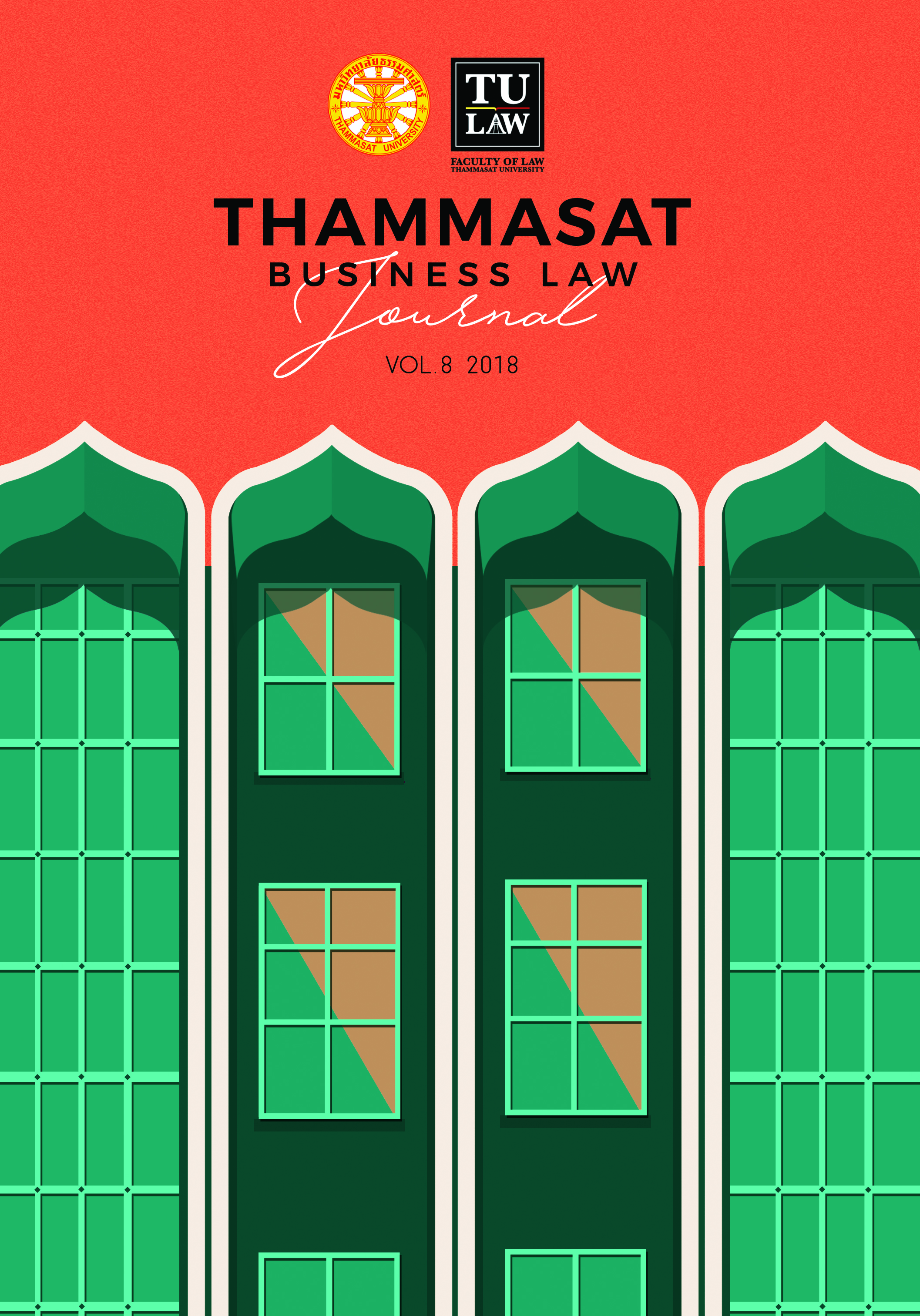Legal Problems Related to Protecting Consumers from Unfair Trading Practices: Lookalike Product Packaging (Copycat)
Main Article Content
Abstract
Some business operators use lookalike product packaging to entice consumers to purchase their product. This lookalike packaging contains false information that confuses consumers and leads them to make an erroneous purchase because they are misled to believe that the false product is made by the same manufacturer as the genuine one. Moreover, this practice also affects the competition in the market. Since the results of this study indicate that Thai law does not contain any obvious legal measure to control lookalike product packaging, it will be suggested that a legal measure should added to the Thailand Consumer Protection Act B.E. 2522 to address this omission and the legal measures related to consumers’ rights to redress under the Thailand Consumer Case Procedure Act B.E. 2551 should also be improved.
Article Details
References
The Australian Consumer Law
The United Kingdoms Consumer Protection from Unfair Trading Regulations 2008
The United Kingdoms Consumer Protection (Amendment) Regulations 2014
The German Law Act Against Unfair Competition
Electronic Media
Department for Business Innovation and Skills, 'Review of the
enforcement provisions of the Consumer Protection from
Unfair Trading Regulations 2008 in respect of copycat
packaging'
accessed 5 June 2018.
European Brands Association, ‘Parasitic Copying: Trading on
Innovation and creativity of others'
Fox A and Nielen M, ‘Fighting unfair competition in the UK and
Germany: An Anglo-German perspective’
Australian Case
Homart Phamaceuticals Pty Ltd v Careline Australia Pty Ltd (2017)
FCA 403 (Federal Court of Australia)


